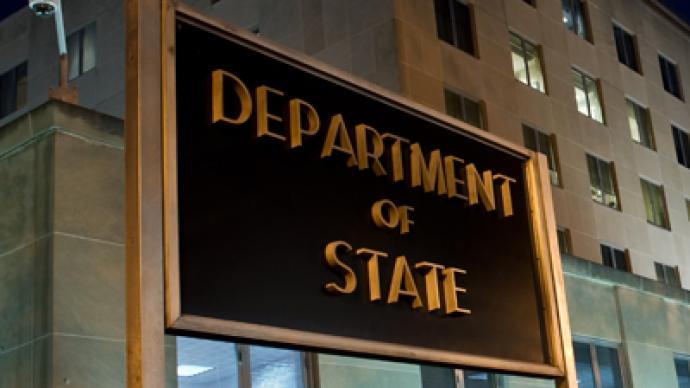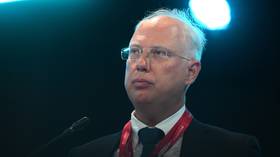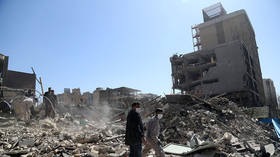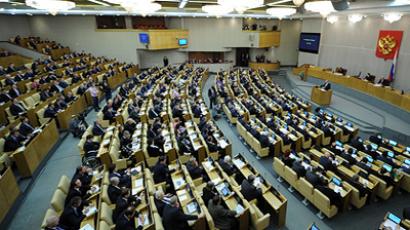West's battle for Russian ‘hearts and minds’: NGOs on steroids (Op-Ed)

The Russian Duma has just passed amendments to the Russian NGO law.
Russian NGOs receiving foreign funding will now have to register at the Ministry of Justice as an “NGO carrying out functions as a foreign agent”, make public their sources of funding by marking it on the materials they distribute, and report semi-annually to the Ministry of Justice on their activities.This law, a great majority of Russians believe, is long overdue. In the past 25 years, billions of dollars have been pouring into Russia from the US State Department and its subsidiary agencies like the US Agency for International Development (USAID – nearly $3 billion alone), as well as from so-called “private foundations” like the National Endowment for Democracy, Freedom House, and George Soros’s Open Society Institute. All of these institutions, judging by their activities and leadership’s biographies, have important ties to the US State Department, the intelligence community, Cold War and the “color revolutions”.The goal of all this money was not to express Washington’s generous love of Russia, its culture or its people. In addition to building a loyal infrastructure, it aimed at “winning hearts and minds” – and along the way oil, gas, and military capacity. It has all been about “opening” – “open society”, “open economy”, “open Russia”, “open government” – open for brainwashing, economic plunder, for hijacking Russia’s domestic and foreign policies. Conquest by war is always an option for the US, as we have seen in the former Yugoslavia, Iraq, Libya, and now in Syria. But “victory without war” is cheaper and more effective, as the collapse of Soviet Union has tragically shown. What did Western funding do to the Russian civil society while pursuing military objectives by “peaceful means”? Might it have accidentally contributed to building democracy in Russia? The word “democracy” here is understood in its original sense, as government of the people for the people, not in Washington’s interpretation as a loyal regime subservient to US interest. In fact, the multibillions of Western funding have profoundly distorted Russian civil society. A marginal pro-American group of NGOs that was pumped up with US dollars like a bodybuilder with steroids -it has gained much muscle and shine. Those few Russians willing to serve foreign interests were provided nice offices, comfortable salaries, printing presses, training, publicity, and political and organizing technology which gave them far more capacity, visibility, and influence that they could possibly have had on their own. Money and spin are the only means to promote unpopular ideas, alien to national interests. On the other side is the silent majority of people who is squeezed out of the public space. In Western, and also in Russian media, civil society turns out to be represented by Ludmila Alekseyeva (The Helsinki Group), Boris Nemtsov and Gary Kasparov, rather than by a worker from the Urals, teacher from Novosibirsk or a farmer from Krasnodar Region.Moreover, Russian NGOs not addicted to Western funding are put under serious pressure from Western funders and their local outlets to join the club. Once the Russian organization shows its effectiveness, its leadership receives a call from US Embassy, and an invitation to visit. Money offers follow shortly. If the Russian NGO dares to refuse the bait, one or several mirror organizations are created that, with massive funding and publicity, hijack the subject, fill it out with its agenda and occupy the field. For projects in education, for example, suddenly it will be all Anglo-Saxon models and values. For projects fighting abuse by the police, this fight will be selective and serving to compile incriminatory evidence on loyal officials designed to create hostility to the government in general, rather than truly fighting these intolerable practices. In the field of business associations, one Russian NGO was denounced by a major US-allied corporation for “excessively defending the rights of domestic producers”. No, Western funding does not contribute to strengthening Russian democracy. It only extends the battle field for pro-American forces against patriotic forces. Like steroids, Western funding is injected in the weaker spots of the targeted civil society. Like steroids, it is addictive. Like steroids, it corrupts the mind and body of the political organism. It transforms the target nation into a sick and dependent collaborating entity deprived of independent will, mind, and heart. Russia and other countries subject to Western funding infusions must take charge of their domestic problems. Building a patriotic civil society cannot be outsourced. Democratic processes and national security cannot be outsourced – all the more so to openly hostile governments. These NGO amendments, by correcting an evident gap in our laws, take a major step in leveling the playing field. But this step needs to be followed by further measures that strengthen our national civil societies.
Veronika Krasheninnikova, Director General of the Institute for Foreign Policy Research and Initiatives in Moscow, for RT
The statements, views and opinions expressed in this article are those of the author and do not necessarily represent those of RT.














